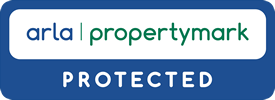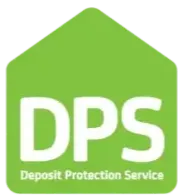Maybe you’re a new landlord and struggling to get your head around all the rent-related jargon you need to learn, or maybe you’re an experienced landlord and just need a reminder of some lettings’ lingo, in this guide Brookings, has got you covered.
As a team of experienced letting agents, we rent out and manage properties all over East London and Essex. And while we use many of these terms daily, it’s understandable if you as a landlord with numerous other responsibilities don’t.
We’ve put together an A-Z of the most commonly used terms that you are bound to come across when renting out a property. Read on for our easy-to-understand breakdown of terminology.
Arrears
Late or unpaid rent.
Assured Shorthold Tenancy Agreement (AST)
A standard tenancy agreement used for lettings (this is set to change with the introduction of the Renters’ Rights Bill due to roll out later in 2025).
Buy-to-Let Mortgage
This is the type of mortgage required if you are investing in a property with the aim of letting it to tenants.
Check In & Out
When tenants move in, this is the process of checking the property beforehand and the condition of the rooms, fixtures, furnishings, meter readings and so on. The findings of a check-in form an inventory which is a detailed report into the state of a property. A check-out is performed at the end of a tenancy. Here the condition of the property, fixtures, fittings and so on is checked against the inventory. If there are any issues, this could affect the tenant receiving their full deposit back.
Energy Performance Certificate (EPC)
Every rental property requires an EPC, which is valid for ten years. This is a report into the energy efficiency of a property and is rated between A and G, where A is the most efficient and G is the least. New tenants should be provided with a copy at the start of any tenancy.
Electrical Installation Condition Report (EICR)
This is a report that details the safety of a property’s electrical installations (such as wiring, switches and sockets). The aim is to identify any potential hazards so that they can be rectified. An EICR must be carried out every five years. New tenants should be provided with a copy at the start of any tenancy.
Fixed Term Tenancy
This is when there is a specific move in and move out date. Fixed term tenancies are typically 12 months in length; however, they are set to be abolished under the new Renters’ Rights Bill and all tenancies will become rolling contracts – where a tenant can move out whenever they wish after a short notice period.
Furnished Property
This is a property which is rented out with furniture such as sofas, beds, wardrobes and so on. An unfurnished property is let without any such items.
Gas Safety Certificate
This is a gas safety check performed by a certified gas engineer to check all gas appliances within a rental property. It must be performed every year and tenants must be supplied with an updated copy at the start of a tenancy and whenever it is renewed.
House of Multiple Occupation
This is a property where three or more tenants live as separate households and share facilities such as bathroom or kitchen.
Inventory
This is a report prepared just before a tenant moves in and details the condition of a rental property, fixtures and furnishings, meter readings and so on. It is a thorough report usually carried out by an independent third party and can be supplemented with photographs. When the tenant moves out, a check-out report is put together assessing the condition of the property against the inventory.
Notice
A tenant must give a period of notice before planning to move out and a landlord must do the same if they want the property to be vacated at the end of tenancy, or if they plan to sell the property.
Portable Appliance Test
A safety check carried out on any small appliances in a rental property provided by the landlord. This includes items such as kettles, microwaves, televisions and so on.
Rental Yield
The rental yield is a calculation of how profitable a rental property is. It is calculated by dividing the annual rental income by the property’s purchase price and multiplying by 100. In 2024 the average UK rental yield was between 5 and 8%. Anything around 5 to 6% is considered good.
Renters Rights Bill
This bill is set to completely transform the UK rental market and is due to be rolled out at some point in 2025. The aim is to give tenants greater stability. Whilst there are a lot of new measures being brought in, some of the main ones are: abolishing assured shorthold tenancies, ‘no-fault’ evictions and bidding wars, limit rent increases and create a landlord ombudsman.
Tenancy Deposit Scheme
A legal requirement for landlords, deposits must be registered in a tenancy deposit scheme to protect the tenant’s money. The scheme allows the money to be held temporarily in the event of any disputes at the end of a tenancy.
Get in Touch
If you’re a landlord and you’re looking for an experienced, reliable letting agent, give us a call on 0208 591 9088. We let and manage properties in the following areas: Romford, Upminster, Hornchurch, Barking, Dagenham and Havering.












